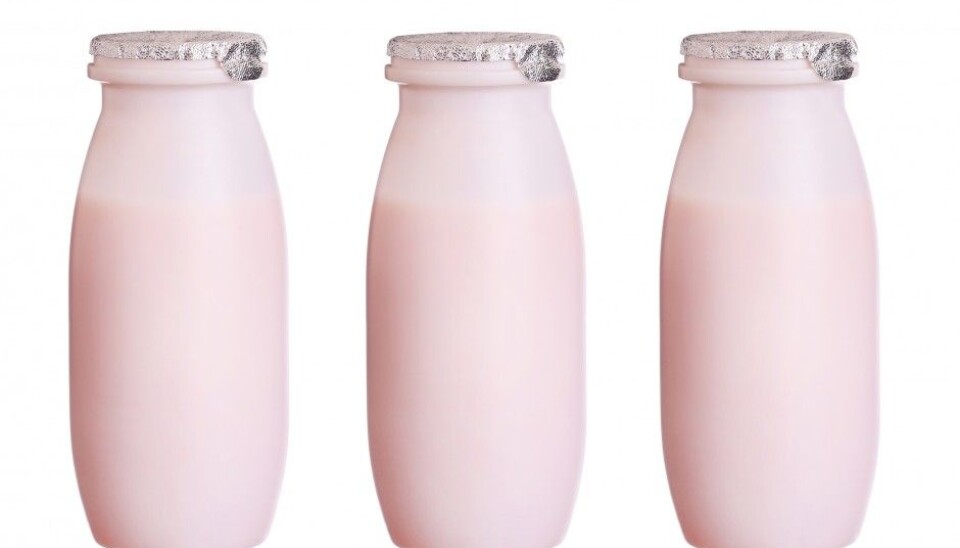
Are probiotics really that good for you?
We swallow billions of allegedly healthy bacteria in fermented foods, beverages and nutritional supplements. Scientists question whether this is always a good thing.
Supermarkets and health stores crowd their shelves with probiotic products that are supposed to bolster health.
They can go by different names, but Norwegian grocery stores have fermented dairy products such as BioQ, Biola and Actimel. Pharmacies and health stores advertise capsules that contain billions of the living bacteria.
Probiotics with so-called friendly bacteria ― mainly lactic acid bacteria ― are often described as a boon for the intestines and our gut flora of microorganisms. Companies that produce these products recommend them for healthy and sick people alike, suggesting that the bacteria pave the way to having healthy and balanced gut flora, and thus better health.
But some wise owls in the field of intestinal research query: How smart is it to flood the digestive system with colossal numbers of identical bacteria?
Cuckoos in the gut?
In the latest issue of the journal Microbial Ecology in Health and Disease the researchers question whether the presumably good bacteria actually act in the gut like cuckoo chicks do in the nests of birds of a different species: They force out other valuable bacteria before fleeing the “nest”.
Then the intestine could be open for an attack of harmful varieties of bacteria.
“It’s an oversimplification to define certain bacteria as only good,” says one of the researchers Jørgen Valeur from Lovisenberg Diakonale Hospital in Oslo.
Professor Trygve Hausken of the University of Bergen is also a researcher of gut bacteria but was not involved in writing the article. However he thinks the article raises some important questions.
“I thinks this is an exciting article which gives cause for reflection,” he says.
“We need to be critical and open to the possibility of a risk with the use of probiotics.”
Many lactic acid bacteria are useful
There is no doubt that many of the lactic acid bacteria found in a natural gut flora have a beneficial effect on our health.
When these bacteria battle for a home in the intestines they exude lactic acid and other compounds which they have no problem with but hamper growth of other bacteria. Their immediate effect is to keep less beneficial bacteria at bay.
Research shows that people with certain health problems ― such as irritable bowel syndrome ― often have abnormally low levels of lactic acid bacteria in their intestines.
So it would seem that supplementing one’s gut with additional lactic acid bacteria from the grocery or drugstore could have a good effect.
Studies have indicated that probiotic lactic acid bacteria can have negative effects, including overweightness.
“However, there are few well-documented clinical benefits and hardly any benefits persisting after termination of probiotics intake,” writes Valeur, together with Arnold Berstad, Tore Midtvedt and Jan Raa.
The scientists have a good idea why we haven’t seen many significant positive effects.
Gone after a few days
The lactic acid bacteria offered to us in drinks and capsules are not typical or average representatives of similar types already present in the gut. On the contrary, they are robust monocultures, specially selected and developed to hinder the growth of other bacteria found in dairy products.
What happens when gut flora encounter a deluge of bacteria which might not be equally adapted to a life in this environment?
The Norwegian medical scientists think probiotic lactic acid at first produce bacterocins that kill off many closely related bacterial residents comprising the gut flora, including some beneficial ones. It’s almost like taking antibiotics.
But the probiotic lactic acid bacteria don’t hang around.
Several studies have shown that the lactic acid bacteria from probiotic products were absent in the intestines within a few days. The studies pointing toward a positive health effect of these products concur that the effect vanishes soon after a customer stops consuming them.
The other side of the picture
So, do probiotic lactic acid bacteria enrich the intestinal flora? Or is the result eventually an eradication and meltdown?
Berstad and assoicates say we don’t know for sure yet.
A lot indicates that probiotic bacteria can be helpful, for instance in preventing allergies or producing key compounds that are deficient in children with ADHD. But their use can have negative impacts too.
It is certainly not evident that the manifold ecosystem in the gastrointestinal tract gains from the addition of large numbers of foreign and monocultural lactic acid bacteria, write the researches.
------------------------------------------------
Read the Norwegian version of this article at forskning.no
Translated by: Glenn Ostling































